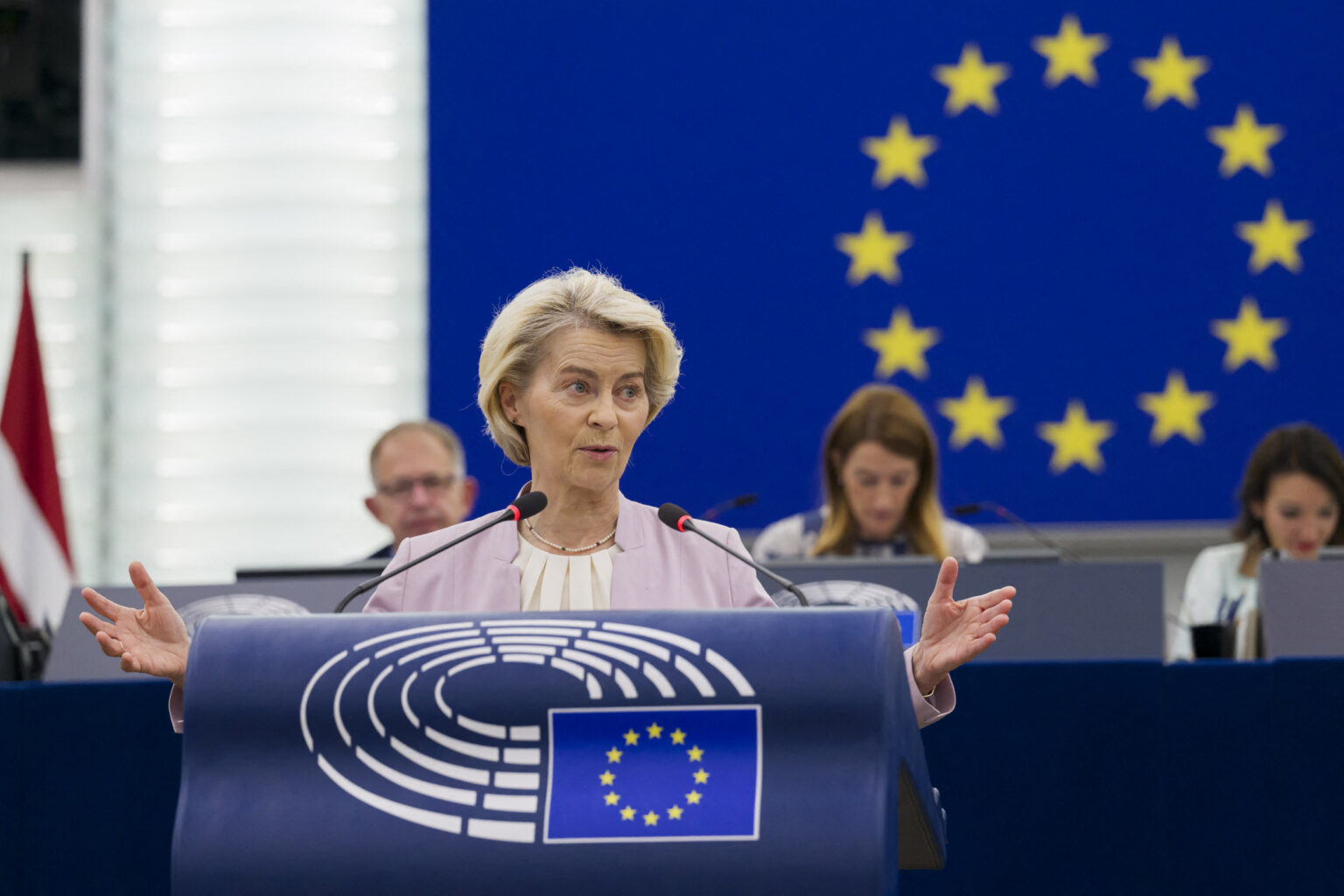European leaders on Saturday responded to President Donald Trump’s announcement that he would apply a 30 percent tariff on goods from the European Union (EU) effective August 1.
In a statement issued midday on Saturday, European Commission President Ursula von der Leyen stressed the EU’s commitment to “dialogue, stability, and a constructive transatlantic partnership.”
Leaders in France and Italy also issued statements later in the day, urging both parties to reach a “fair agreement that can strengthen the West as a whole.”
Why It Matters
Trump has relied on tariffs as a means of trying to renegotiate global trade between the United States and its various partners citing disparities in what he calls unfair trade agreements in order to try and strengthen his country’s position.
However, he has found himself at odds with his allies as they have pushed back against the tariffs despite his claim that these various partners would ultimately seek to make new deals with the U.S. in order to avoid having to face the tariffs.
The administration made its boldest move in April with its Liberation Day tariffs, which applied reciprocal measures against trading partners in order to try and drive down protections against vital U.S. trade industries. Trump ultimately backtracked on the measure, saying that he would negotiate deals with all the various partners within 90 days, but only the United Kingdom and Vietnam ultimately agreed to deals within that timeframe.
What To Know
Trump announced the new tariffs in a letter posted on Truth Social shortly before 9 a.m. ET on Saturday, in which he also warned against retaliation, saying that any retaliatory tariff would produce a reciprocal tariff in addition to the base 30 percent he would impose on the EU.
With Saturday’s letters, Trump has issued tariff conditions on 24 countries and the 27-member EU, the Associated Press reported.
The EU issued a response first, writing in a statement: “We take note of the letter sent by U.S. President Trump outlining a revised tariff rate and a new timeline.”
“Imposing 30 percent tariffs on EU exports would disrupt essential transatlantic supply chains, to the detriment of businesses, consumers and patients on both sides of the Atlantic,” the statement continued. “Few economies in the world match the European Union’s level of openness and adherence to fair trading practices.”
“The EU has consistently prioritized a negotiated solution with the U.S., reflecting our commitment to dialogue, stability, and a constructive transatlantic partnership.”
“We remain ready to continue working towards an agreement by August 1,” the statement added. “At the same time, we will take all necessary steps to safeguard EU interests, including the adoption of proportionate countermeasures if required. Meanwhile, we continue to deepen our global partnerships, firmly anchored in the principles of rules-based international trade.”
French President Emmanuel Macron issued his own response just a few hours afterwards, writing in a post on X, formerly Twitter: “Along with the President of the European Commission, France shares the same very strong disapproval at the announcement of horizontal 30% tariffs on EU exports to the United States from August 1st.”
“This announcement comes after weeks of intense engagement by the Commission in negotiations with the United States, on the basis of a solid offer made in good faith,” he wrote. “With European unity, it is more than ever up to the Commission to assert the Union’s determination to resolutely defend European interests.”
His statement continued: “In particular, this implies speeding up the preparation of credible countermeasures, by mobilizing all the instruments at its disposal, including anti-coercion, if no agreement is reached by August 1st. On this basis, France fully supports the European Commission in the negotiations, which will now intensify, to reach a mutually acceptable agreement by August 1st, reflecting the respect that trading partners like the European Union and the United States owe each other, with their shared interests and integrated value chains.”
Italy followed France in backing the EU in negotiations, with Italian Prime Minister Giorgia Meloni’s office writing: “We trust in the goodwill of all stakeholders to reach a fair agreement that can strengthen the West as a whole, given that—particularly in the current scenario—it would make no sense to trigger a trade conflict between the two sides of the Atlantic.”
“The Italian government continues to closely monitor the progress of the ongoing negotiations between the European Union and the United States, fully supporting the European Commission’s efforts, which will be further intensified in the coming days,” the statement added. “Now, it is crucial to remain focused on the negotiations, avoiding polarization that would make reaching an agreement more difficult.”
What Happens Next?
The EU will continue to seek a trade deal on behalf of all member states with the U.S. before the August 1 deadline or face the hefty 30 percent tariff Trump has promised.
Read the full article here

